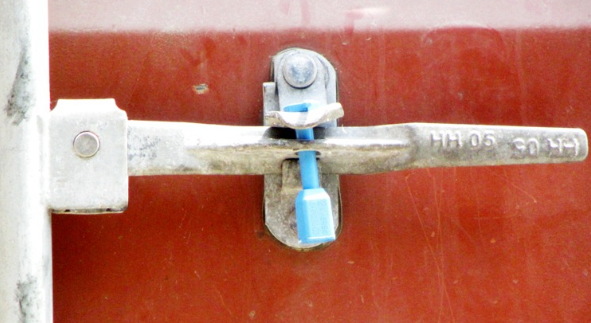About the container seal
With a seal, the recipient just breaks the seal. Easy! For low-security shipments, a simple, inexpensive cable tie will do. For higher-security shipments, steel cable seals remain a lightweight, inexpensive choice.
From embossed lead wire seals to plastic and metal strip seals to plastic and metal bullet seals to padlocks everything has been used so far to safeguard the precious cargo that is shipped in containers.
Depending on the shipping line or the exporter and the level of safeguard required, many containers carry any of the above types of seals.. But foremost importance is that a seal be present on the container and that it is put in the right place.
A container has two lock rods on each door. The left door closes first and then the right door.So the effective place where the seal needs to be put is on the right door as that has to be opened first. Either on one or both of the lock rods.. If required you can put an additional seal(s) on the left door, but that really doesn’t matter unless the cargo cannot be taken out through one door.

Description: Heavy duty locking device with security seal. Easy to mount to the container. No tools are needed. For removal an electric cutter is required.
Application(s): Export containers
Personalization: optional
Packaging: 6 pieces per cardboard box
If you ship a package or load a container with a lock, whoever receives it has to have the key. And key-control programs can be complicated—and expensive.
Below are criteria for determining the best seal for your application:
Determine if an indicative or barrier seal is required. If using a barrier seal, determine what strength level is needed. Make sure that the seal type that you choose fits the device. Choose a seal that has the appropriate level of strength and security. Measure seal cost vs. security risks. Use a manageable locking system considering the tools and resources you have at your disposal. Consider the durability of the seal in relation to its environment.


